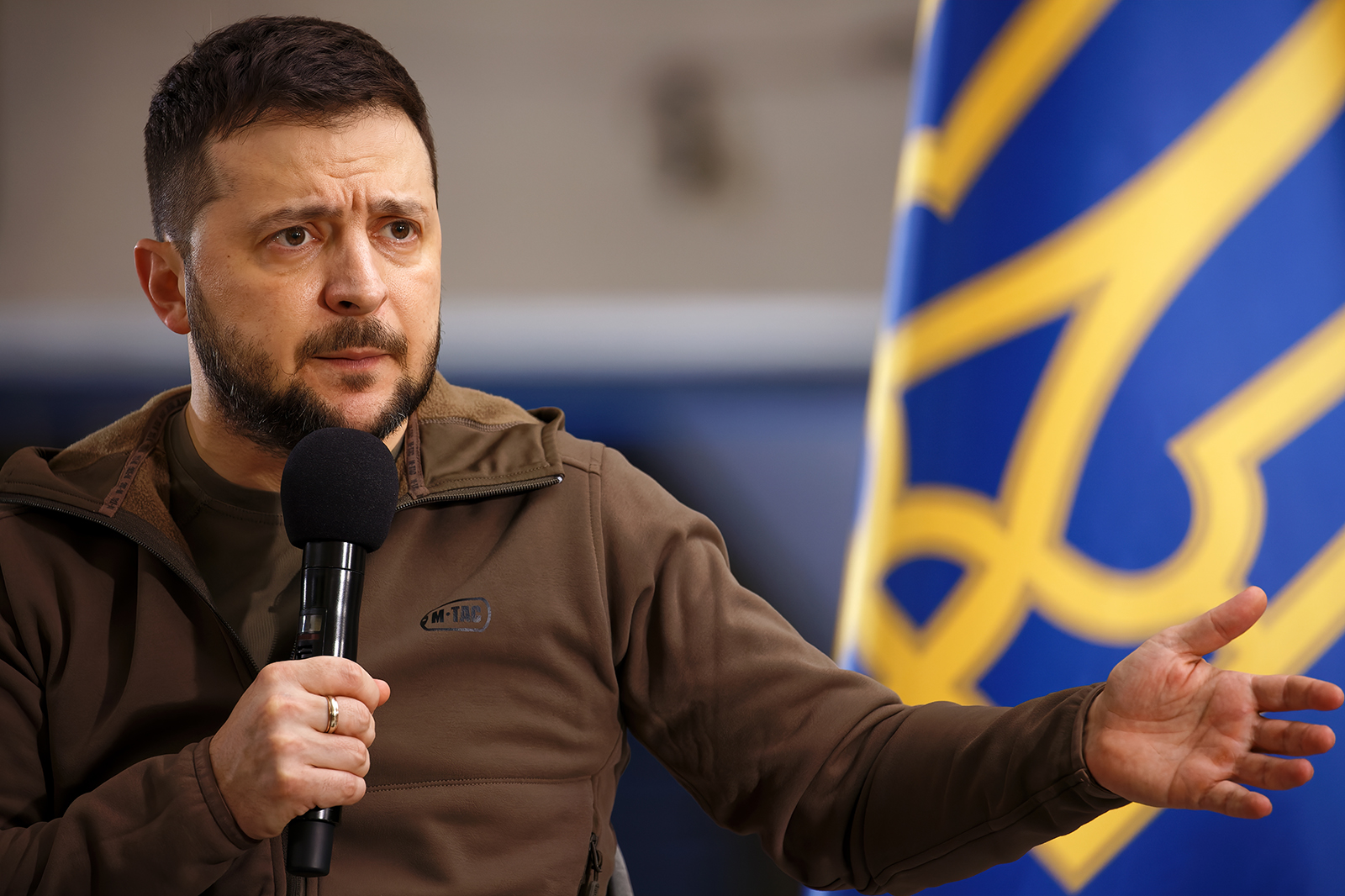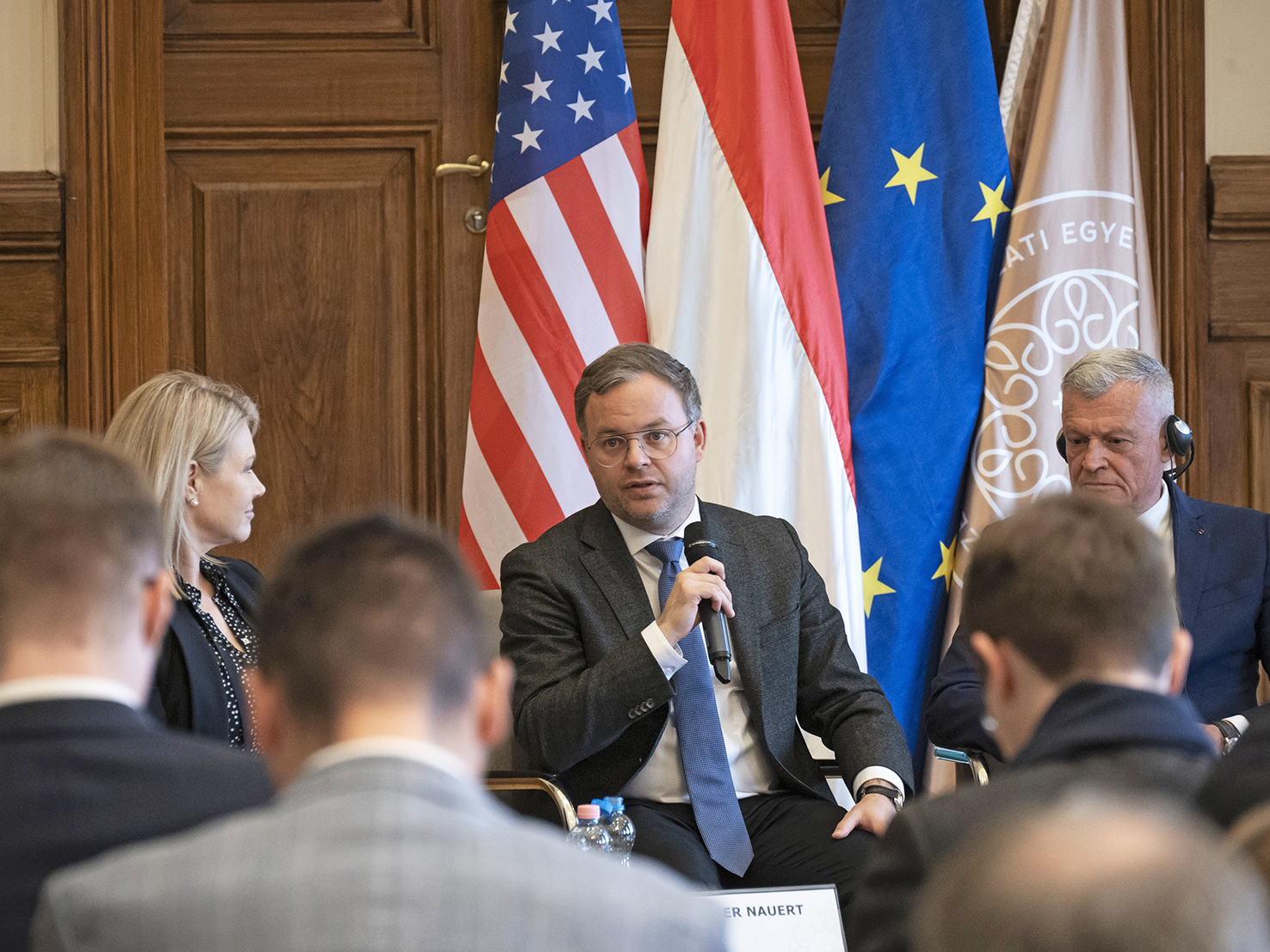EU and Hungarian Tensions Grow Over Ukraine Aid

Vigorous Warrior 24, the world’s largest multi-national military medical exercise, took place in Hungary from April 28 to May 9. In the photo, a “wounded” man is transported to the Hungarian Defense Forces Role2 field hospital at the Bakonykút training area on May 7. The NATO drill involved 33 nations, deploying medical units and field hospitals, but also involved in planning and analysis. Vigorous Warrior is held every two years and will next be staged in Estonia in 2026. However, while happy to host the exercise, PM Viktor Orbán says he will not agree to any changes to NATO’s founding treaty.
Photo by Tamás Vasvári / MTI
Hungary will continue to maintain its current position of advocating for peace while avoiding any escalation of the war despite “enormous pressure,” Minister of Foreign Affairs and Trade Péter Szijjártó told reporters after meeting his European Union peers in Brussels on May 27.
Szijjártó made the comments after blocking the provision of an additional EUR 6.5 billion in support for Ukraine, comprising EUR 1.5 bln from the European Peace Facility for arms deliveries to Ukraine and a further EUR 5 bln from the Ukraine Assistance Fund. The move drew audible complaints from his colleagues.
Acknowledging the tense atmosphere at the meeting, Szijjártó said, “There is no reason to shout at us; we are on the side of peace.” While Budapest continually leans on its appeal for peace in blocking support for Ukraine, diplomats told international news wire Reuters that Hungary’s stance is often in line with Russia’s interests.
Indeed, Szijjártó noted that Hungary would not back another round of sanctions against Russia, arguing that it went against Hungary’s economic interests and could threaten the country’s steady supply of energy.
Hungary’s persistent obstruction of support for Ukraine and its reluctance to distance itself from Russia has become a running theme at meetings of Western allies, raising tensions that boiled over at the latest gathering.
“We always have [issues] with Hungary,” Estonian Foreign Minister Margus Tsahkna told German press agency DPA. According to Lithuanian Minister of Foreign Affairs Gabrielius Landsbergis, roughly 41% of resolutions by the EU on Ukraine have been blocked by Hungary. Before the meeting, he called out Hungary for effectively neutralizing any efficacy on the part of the European Union toward resolving the conflict.
Systemic Approach
“Almost all of our discussions and needed solutions and decisions by the EU are being blocked by just one country,” Landsbergis told reporters upon arriving at the meeting. “We have to start seeing this as a systematic approach towards any efforts by the EU to have any meaningful role in foreign affairs.”
The EU’s top diplomat, Josep Borrell, asserted that the bloc could not let its military support for Ukraine become dependent on “other decisions which have nothing to do with the specific issue,” suggesting that Hungary could be effectively using its veto as leverage to gain concessions from the EU over its own funding dispute of its own.
Since 2022, the EU has been withholding tens of billions of euros slated for Hungary in the 2021-27 budget cycle over concerns of democratic backsliding by the government of Prime Minister Viktor Orbán, who has been in power since 2010.
After continually insisting that he would withhold his approval for further funding for Ukraine at an EU summit last year, Orbán changed his tune on Dec. 14-15 when the EU decided to release more than EUR 10 bln to Hungary on Dec. 13.
“I’m ready to make a financial deal on financial issues,” Orbán told the Mandiner weekly podcast the same day. Although he ultimately blocked the funding, he tacitly allowed the EU to start membership negotiations with Ukraine by leaving the room when the vote was taken.
Overstepping?
While EU officials accuse Hungary of impropriety, the Hungarian premier believes that the North Atlantic Treaty Organization is overstepping its bounds with a recent proposal. At a two-day meeting of NATO foreign ministers on April 3-4, General Secretary Jens Stoltenberg proposed a EUR 100 bln five-year package of military aid to Ukraine, which would involve assuming control over some of the coordination work of the Ramstein Group, a U.S.-led ad-hoc coalition providing military equipment for Ukraine.
During an interview with Kossuth Rádió on May 24, Orbán said that Hungary adhered to the founding treaty of NATO as a defense alliance, emphasizing that there is no mention of the organization performing military actions outside of NATO territory.
Orbán reiterated that Hungary does not wish to contribute arms or financing to the conflict. During the same interview, he also said that fears of an attack on NATO by Russia were unfounded, given the difficulty it has been experiencing in Ukraine.
“The Russian military is fighting a serious and difficult war with the Ukrainians,” Orbán said. “If the Russians were strong enough to wrestle down the Ukrainians in one go, they would have done so already.” He also pointed out its relative weakness compared to the Western alliance.
“I do not consider it logical that Russia, which cannot even defeat Ukraine, would all of a sudden come and swallow the Western world whole,” said Orbán. “The chances of this are extremely slim.”
This article was first published in the Budapest Business Journal print issue of May 31, 2024.
SUPPORT THE BUDAPEST BUSINESS JOURNAL
Producing journalism that is worthy of the name is a costly business. For 27 years, the publishers, editors and reporters of the Budapest Business Journal have striven to bring you business news that works, information that you can trust, that is factual, accurate and presented without fear or favor.
Newspaper organizations across the globe have struggled to find a business model that allows them to continue to excel, without compromising their ability to perform. Most recently, some have experimented with the idea of involving their most important stakeholders, their readers.
We would like to offer that same opportunity to our readers. We would like to invite you to help us deliver the quality business journalism you require. Hit our Support the BBJ button and you can choose the how much and how often you send us your contributions.











